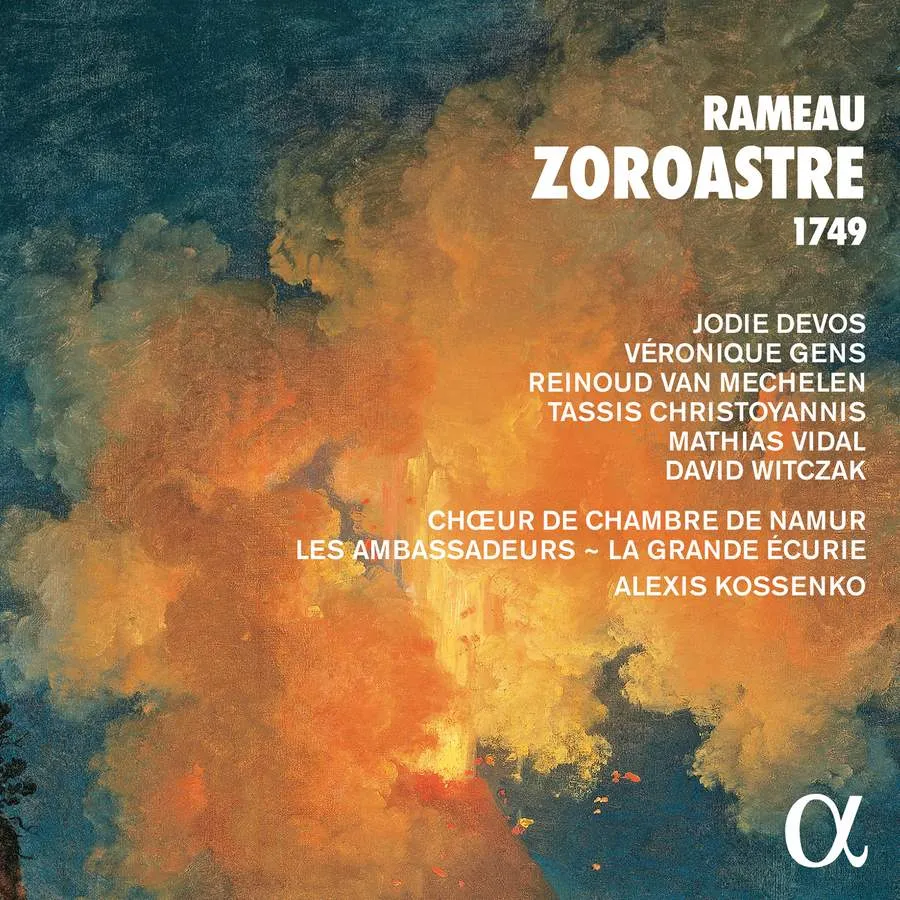
Rameau Zoroastre (1749 version) Jodie Devos, Véronique Gens, Reinoud van Mechelen, Tassis Christoyannis; Les Ambassadeurs – La Grande Écurie; Chœur de Chambre de Namur/Alexis Kossenko Alpha Classics ALPHA 891 165:38 mins (3 discs)
When this opera is performed today, it’s always in its revised 1756 version: the original 1749 one was deemed by conservative critics to be too imbued with Masonic and Enlightenment ideas; its use of remote Persian mythology – as opposed to the conventional medievalism – was also frowned on. This recording of the 1749 version is a devoted piece of musical archaeology, as was the same creative team’s treatment of Rameau’s Achante et Céphise in 2020. Here they have replicated not only the original score of Zoroastre – including some fine numbers unheard in modern times – but also the original instrumentation and orchestral layout.
Rameau was 66 when he wrote this work, and in his creative prime. Its particular innovations were to replace the usual prologue with a programmatic overture, and to be infused with a wealth of new musical colours. The plot requires that the characters be crudely drawn, as the noble Zoroastre defeats the tyrant Abramane and his satanic spirits, thus winning the hand of the unjustly imprisoned Amélite. For listeners more used to English Baroque, this example of high French Baroque will require a big adjustment: every element – aria, duet, chorus, instrumental interlude – is short and thick with text; the feminine ending of each musical line reinforces the Gallic character of the whole.
The chorus and line-up of soloists is first-rate, with a suitably menacing Abramane (Tassis Christoyannis) and a witchy Érinice (Véronique Gens); with a gorgeously pure-toned Amélite (Jodie Devos), and an expressive and clarion-voiced Zoroastre (Reinoud van Mechelen). The instrumental numbers (notably the sarabands) are beautifully done, with the weather – lashings of thunder and lightning – forcefully dramatised throughout.
Michael Church